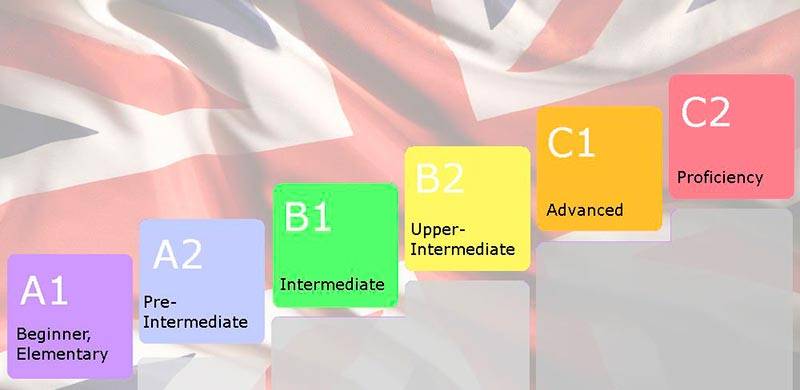A1, B2, C1… What is the “CEFRL”?


- Posted by Milana Furman
- Posted in SVI
What is the CEFRL for?
Have you ever been in this situation? You want to apply for a job, an internship or a voluntary project abroad, but at the very moment you’re about to click and send your email, you notice a tiny little detail you had missed so far: “Minimum language level required: B1”, or “B2”, or even “C1” for some very selective projects. But what does it really mean? How can you know whether you’re B1, B2 or C1? What does it imply in practice? Discover now the Common European Framework of Reference for Languages.
Beyond thatfuzzy and complicated name, the CEFRL (short for Common European Framework of Reference for Languages) is actually pretty easy to understand. It is some sort of scale defining your skill level in a specific language, from the very beginner to the seasoned speaker able to express everything in any complex situation (just like you with your mother tongue). Your level is assessed according to your capacity to speak, write and understand this language.
But I’m not sure you get my point. Let’s go into more detail:

A1:
That’s the most basic CEFRL level. The one you’ve got when you start learning a new language. You can understand some very simple sentences and express some very concrete ideas that relate to your daily life. You could almost ask for directions if you prepare your sentence beforehand and if the passer-by answers articulately.
A2:
You’re getting better. Now you can understand the essential parts of some longer messages if their content is predictable, and you can carry on short conversations about something you’re familiar with. You can’t watch original version films and series yet, but you’re getting closer.
B1:
Now you are independent. If you are spoken to in a standard and clear language, you’re good. You even manage to follow some radio or TV shows, and can take part in usual conversations with no previous preparation. You could live fora short period of time in the foreign country and get by.
B2:
Here they are! Original version series! Now you can watch them (obviously without subtitles) and get most of their content, but not every single line. You’re also gaining more spontaneity and can write texts that are a bit more complex, like essays in which you express your opinion on a matter. That’s usually the minimum level required by universities.
C1:
Now you are proficient. You can follow long speeches and films without too much effort. Words come more easily, and you can talk more efficiently in both personal and professional situations, even about complex and abstract subjects. You can adapt your style and language register quite thoroughly according to the person you’re talking to.
C2:
You’ve found the Holy Grail of the CEFRL. You’ve become the undisputed master. You’re just as comfortable as with your mother tongue, you can express very subtle nuances, and you can understand any kind of speeches, even when it goes fast. Then… what are you waiting for? Go and travel now! Enjoy the fruits of your labour and discover the world’s thousands of cultures!
Learn more about the CEFRL
In any case, you must know that it is very difficult to self-determine your language level. That is why several institutions were specifically created to help you assess your own skills, by letting you take an exam and providing you with an official document that attests your actual level. That’s the document required by many companies and universities that demand a specific language level. Here are some links if you’re looking for more details:
English: https://www.cambridgeenglish.org/fr/exams-and-tests/
Spanish: https://paris.cervantes.es/fr/default.shtm
German: https://www.goethe.de/ins/fr/fr/index.html
French: https://www.ciep.fr/delf-dalf
Now that you know everything about the CEFRL, you may want to improve your speaking level in languages such as English, Spanish, Russian, or even Swahili or Arabic, right? Then check our online classes provided by native-speaking professional teachers!
